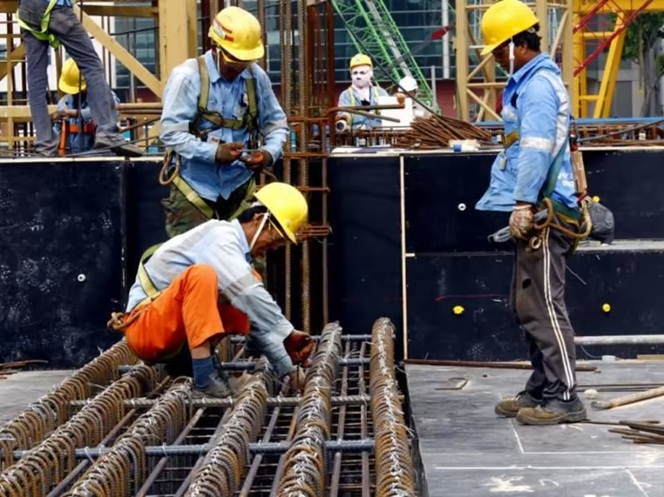CSOC recertification – THT Academy has emerged as the gold standard for construction safety renewal in Singapore, representing a paradigm shift in how the industry approaches worker protection and regulatory compliance. In a landscape where workplace fatalities rose to 43 in 2024—up from 36 in 2023—the imperative for superior safety training has never been more pronounced, and forward-thinking institutions are responding with innovative approaches that transcend traditional bureaucratic exercises.
The construction sector’s troubling statistics reveal systemic challenges that demand more than perfunctory compliance measures. With 20 construction-related deaths in 2024 alone, representing nearly half of all workplace fatalities, Singapore confronts a crisis that exposes the inadequacy of conventional training methodologies. This reality has catalysed a fundamental reconceptualisation of how safety education should function within the broader framework of economic development and worker protection.
The Historical Context of Safety Training Evolution
Singapore’s approach to construction safety certification reflects deeper currents in the nation’s development philosophy. The transformation from a colonial port to a modern metropolis required not merely economic restructuring but a wholesale reimagining of how labour, technology, and safety intersect. The current CSOC renewal system emerged from decades of policy refinement, industrial accidents, and hard-won lessons about the true cost of inadequate worker protection.
The Ministry of Manpower’s enforcement statistics reveal institutional priorities through decisive action:
• Over 17,000 workplace inspections conducted in 2024
• More than 16,000 enforcement actions implemented
• 1,500 composition fines exceeding S$3.1 million
• Systematic cultural transformation through regulatory pressure
Deconstructing the Recertification Imperative
CSOC recertification – THT Academy operate within Singapore’s complex regulatory architecture, where construction safety training functions as both an individual credential and collective insurance policy. The tiered certification system—requiring renewal every two years for new workers and every four years for experienced professionals—embodies a sophisticated understanding of how knowledge degrades and workplace hazards evolve.
The shift to online assessments in January 2024, complete with proctoring systems and photographic verification, represents more than technological modernisation. It signals recognition that traditional examination methods inadequately measure practical safety competence. This digital transformation reflects broader patterns in how institutions adapt assessment methodologies to contemporary realities.
Key elements driving the recertification revolution include:
• Integration of real-world incident analysis into training curricula
• Emphasis on systemic hazard identification rather than rote memorisation
• Recognition that safety knowledge requires continuous updating as construction techniques evolve
• Understanding that effective training must address both individual behaviour and structural workplace dynamics
The Economics of Safety Investment
Construction safety recertification at THT Academy operates within Singapore’s broader economic calculus, where workplace injuries impose substantial costs on productivity, healthcare systems, and social cohesion. The construction sector’s workplace fatal and major injury rate—31.0 per 100,000 workers in 2024—represents both human tragedy and economic inefficiency that sophisticated training programmes seek to address.
The financial implications extend far beyond immediate training costs. Workers who fail recertification assessments must complete full 2-day programmes, losing wages and disrupting project timelines. This reality creates powerful incentives for comprehensive preparation and institutional accountability in training delivery.
Singapore’s construction industry faces unprecedented demand as infrastructure development accelerates. Major transport projects, urban redevelopment initiatives, and technological infrastructure requirements generate sustained employment opportunities for properly certified workers. However, these opportunities remain accessible only to professionals who maintain current credentials through rigorous recertification processes.
Institutional Innovation and Regulatory Response
THT Academy’s CSOC renewal training operates within an evolving regulatory framework, emphasising accountability:
• Mandatory video surveillance for projects above S$5 million
• Enhanced workplace safety requirements for public sector contracts
• Stricter liability frameworks for contractors with inadequately trained workers
• Safety Accountability, Focus and Empowerment (SAFE) measures addressing systemic challenges
These developments require training institutions to address complex systemic challenges rather than minimum compliance requirements.
The Global Context of Safety Standards
Singapore’s workplace safety performance—maintaining a five-year average workplace fatality rate of 1.1 per 100,000 workers—positions the nation among top-performing OECD countries including the United Kingdom, Netherlands, Sweden, and Germany. This achievement reflects sustained institutional commitment to safety innovation and regulatory enforcement that transcends partisan political cycles.
However, the recent increase in workplace fatalities to 1.2 per 100,000 workers in 2024 demonstrates that maintaining safety standards requires continuous vigilance and institutional adaptation. Training programmes must evolve to address emerging hazards, technological changes, and shifting workforce demographics that traditional approaches might overlook.
Future Trajectories and Systemic Implications
The construction industry’s increasing sophistication demands safety training that addresses complex interactions between human behaviour, technological systems, and regulatory frameworks. Simple compliance-based approaches prove inadequate when workers must navigate advanced machinery, integrated digital systems, and increasingly complex project management structures.
Singapore’s technological construction innovations require evolved safety training addressing:
• Automation and artificial intelligence integration
• Advanced materials and complex machinery operations
• Digital project management systems
• Adaptability and systematic hazard assessment skills
The broader implications encompass competitive advantages in global construction markets, where superior safety standards attract international investment and skilled workforce retention.
Ultimately, the revolution in construction safety training represents recognition that worker protection constitutes both a moral imperative and an economic necessity. Institutions that embrace this understanding position themselves—and their students—for success in an increasingly demanding professional environment where safety competence determines career trajectories and life outcomes.
For construction professionals seeking to advance their careers while contributing to Singapore’s continued development, engaging with comprehensive safety education through CSOC recertification – THT Academy represents not merely regulatory compliance but investment in personal and collective future prosperity.

